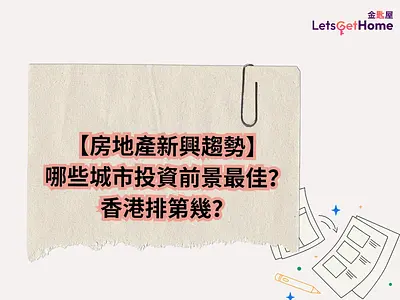2024 HK Property Tax: Reducing Stamp Duty for Home Buyers
Listen to the blog audio:
On February 28, 2024, the Financial Budget for 2024/25 was released, announcing the complete abolition of all "spicy" taxes, including the Special Stamp Duty (SSD), Buyer's Stamp Duty (BSD), and New Residential Stamp Duty (NRSD). This represents great news for many potential buyers. However, for those embarking on their first property purchase, calculating stamp duty remains a complex issue. This article will dissect the latest Hong Kong property market policies, assisting first-time buyers in navigating stamp duty calculations.
Key Highlights of the 2024 Hong Kong Financial Budget
With the unveiling of the Hong Kong Financial Budget for 2024/25 on February 28, 2024, the Hong Kong government declared the full revocation of the SSD, BSD, and NRSD, marking an unprecedented boon for first-time buyers eager to enter the housing market.
Who is Affected?
The policy shift primarily impacts individuals planning their first residential property purchase, including local residents and foreigners interested in the Hong Kong real estate market.
Why Does it Matter?
Stamp duty has always been a significant component of property acquisition costs. Its complex calculation and hefty fees pose challenges to prospective buyers. The abolition of "spicy" taxes necessitates a thorough understanding of the new stamp duty calculations and their implications for first-time buyers, crucial for financial planning and timing their market entry.
Which Taxes Have Been Scraped?
- Special Stamp Duty (SSD): Levied on short-term property resales.
- Buyer's Stamp Duty (BSD): An additional tax on non-permanent residents purchasing residential properties.
- New Residential Stamp Duty (NRSD): A higher rate applied to all buyers of new residential properties.
How to Calculate the New Property Stamp Duty?
The foundation for stamp duty calculation remains unchanged, based on the higher of the property's transaction price or valuation. However, buyers are now required to only pay stamp duty at the Ad Valorem Duty (AVD) rates for any residential property transactions.
What is Ad Valorem Duty?
Ad Valorem Duty, abbreviated as AVD, is a tax paid by property buyers, ranging from $100 to 4.25% of the property price, varying according to the property's value. Simply put, for properties priced at $3 million or below, the stamp duty is only $100. For higher-priced homes, the stamp duty increases proportionally with the property price.
Are There Any Changes in the Payment Process?
After signing the provisional sale and purchase agreement, buyers must pay a deposit at a predetermined rate, followed by the signing of the formal agreement and payment of the remaining amount. During this process, buyers must declare and pay the corresponding stamp duty to a lawyer or directly to the tax bureau.

How to Pay Stamp Duty Under Various Scenarios?
- Will future property purchases be completely exempt from stamp duty? No, despite the abolition of "spicy" taxes, buyers are still required to pay the Ad Valorem Stamp Duty.
- If a property was bought yesterday and sold today, is the additional stamp duty still applicable? Since the additional stamp duty has been repealed, it no longer needs to be paid.
- For existing residential property owners purchasing a new property, which tax applies? Only the Ad Valorem Stamp Duty needs to be calculated.
- For properties held in a company's name, which stamp duty is applicable? Only the Ad Valorem Stamp Duty must be paid.
- For non-permanent resident buyers, which stamp duty applies? Only the Ad Valorem Stamp Duty is required.
Why Did the HK Government Scrape the "Spicy" Measures Now?
Considering a continuous budget deficit for the second year and the need for economic recovery, the government has completely scrapped "spicy" tax measures, including residential property "spicy" measures and stamp duty "spicy" stress tests. These policy adjustments aim to stimulate property market transactions and foster economic recovery.
What Changes Will Occur in the Property Market Following the Repeal?
The budget explicitly exempts the buyer's stamp duty and scrapes additional stamp duty and new residential stamp duty. These measures will directly alleviate the economic burden on homebuyers and may invigorate the secondary property market.
Following the repeal, an increase in property market transactions is expected, possibly leading to a short-term rise in property prices. However, the long-term impact will depend on market supply and demand dynamics and other economic factors.









